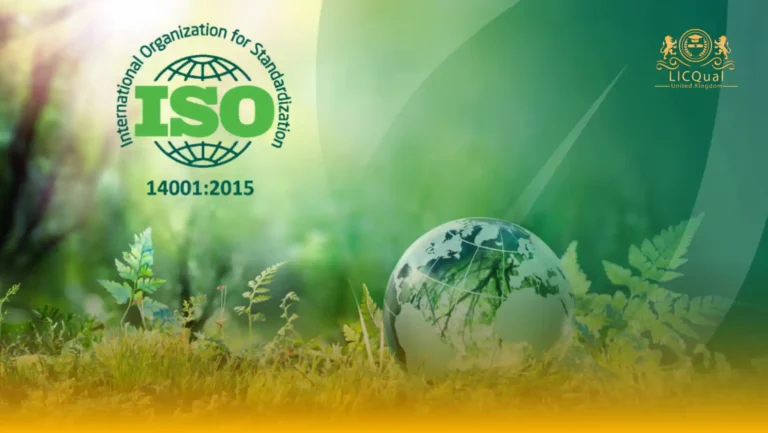Welcome to the LICQual ISO 26000:2010 Social Responsibility course! This comprehensive training is designed for professionals who want to understand and implement social responsibility practices in accordance with the ISO 26000:2010 standard. As organizations worldwide are increasingly being held accountable for their social, environmental, and ethical impact, this course provides the knowledge and tools needed to assess and audit social responsibility initiatives effectively.
Whether you’re an auditor, compliance officer, or sustainability professional, this course will enable you to drive positive change within organizations, ensuring they meet international standards for social responsibility. By the end of the course, you will be ready to lead audits that help organizations improve their sustainability efforts, enhance stakeholder trust, and contribute to a more ethical and responsible business environment.
The LICQual ISO 26000:2010 Social Responsibility course offers an in-depth exploration of the ISO 26000:2010 standard, focusing on the key principles of social responsibility, ethical behaviour, and sustainable development.
This course covers essential topics such as organizational governance, human rights, labor practices, the environment, fair operating practices, consumer issues, and community involvement. You will learn to assess the effectiveness of social responsibility initiatives, audit management systems, and provide recommendations for improvement.
Through case studies and practical examples, you will develop the skills needed to conduct thorough audits, identify non-conformities, and guide organizations toward greater social responsibility. By the end of the course, you will have the expertise to implement and assess social responsibility initiatives that align with global best practices, ensuring organizations meet their ethical and sustainability goals in compliance with ISO 26000:2010.
Course Overview
Qualification Title
LICQual ISO 26000:2010 Social Responsibility
Total Units
6
Total Credits
40
GLH
120
Qualification #
LICQ2200104
Qualification Specification
To enrol in the LICQual ISO 26000:2010 Social Responsibility, applicants must meet the following criteria:
|
Qualification# |
Unit Title |
Credits |
GLH |
|---|---|---|---|
|
LICQ2200104-1 |
Introduction to ISO 26000:2010 and Social Responsibility Principles |
8 |
24 |
|
LICQ2200104-2 |
Understanding Organizational Governance and Social Responsibility |
8 |
24 |
|
LICQ2200104-3 |
Human Rights and Labor Practices in Social Responsibility |
6 |
18 |
|
LICQ2200104-4 |
Environmental Responsibility and Sustainable Practices |
6 |
18 |
|
LICQ2200104-5 |
Fair Operating Practices and Ethical Business Practices |
6 |
18 |
|
LICQ2200104-6 |
Community Involvement and Consumer Issues in Social Responsibility |
6 |
18 |
By the end of this course, learners will be able to:
Introduction to ISO 26000:2010 and Social Responsibility Principles
Upon completion of this unit, learners will be able to:
- Understand the key principles and core components of ISO 26000:2010.
- Recognize the significance of social responsibility in the global business landscape.
- Identify the seven key areas of social responsibility and their importance in creating a socially responsible organization.
- Apply the ISO 26000 framework to evaluate social responsibility initiatives within organizations.
Understanding Organizational Governance and Social Responsibility
By the end of this unit, learners will be able to:
- Define organizational governance and its role in implementing socially responsible practices.
- Assess leadership, transparency, and accountability in organizations according to ISO 26000.
- Evaluate how governance structures influence decision-making, stakeholder engagement, and ethical business conduct.
- Demonstrate the process of auditing organizational governance to ensure alignment with social responsibility standards.
Human Rights and Labor Practices in Social Responsibility
After completing this unit, learners will be able to:
- Identify human rights and labor practices issues that organizations must address to comply with ISO 26000.
- Evaluate an organization’s commitment to human rights and fair labor practices within the workplace and supply chain.
- Develop strategies for auditing human rights policies, ensuring non-discrimination, equal opportunity, and fair wages.
- Assess compliance with international labor standards and human rights guidelines in various organizational settings.
Environmental Responsibility and Sustainable Practices
Upon successful completion of this unit, learners will be able to:
- Understand the key environmental considerations outlined in ISO 26000:2010.
- Assess an organization’s environmental practices, including energy efficiency, waste reduction, and resource conservation.
- Evaluate the impact of an organization’s operations on the environment and recommend sustainable practices for improvement.
- Apply environmental auditing techniques to measure an organization’s commitment to sustainable development.
Fair Operating Practices and Ethical Business Practices
By the end of this unit, learners will be able to:
- Understand the importance of fair operating practices, including anti-corruption and ethical business behavior.
- Analyze and audit business practices related to competitive conduct, stakeholder relations, and supply chain management.
- Identify and mitigate unethical or unfair business practices in line with ISO 26000 principles.
- Develop strategies to foster transparency, integrity, and ethical business conduct within organizations.
Community Involvement and Consumer Issues in Social Responsibility
After completing this unit, learners will be able to:
- Recognize the significance of community involvement and consumer protection in achieving social responsibility.
- Assess an organization’s impact on its local community, stakeholder relations, and social contributions.
- Evaluate an organization’s approach to consumer rights, product safety, and ethical marketing practices.
- Implement strategies for improving an organization’s community engagement and ensuring responsible consumer practices.
This diploma is ideal for:
Assessment and Verification
All units within this qualification are subject to internal assessment by the approved centre and external verification by LICQual. The qualification follows a criterion-referenced assessment approach, ensuring that learners meet all specified learning outcomes.
To achieve a ‘Pass’ in any unit, learners must provide valid, sufficient, and authentic evidence demonstrating their attainment of all learning outcomes and compliance with the prescribed assessment criteria. The Assessor is responsible for evaluating the evidence and determining whether the learner has successfully met the required standards.
Assessors must maintain a clear and comprehensive audit trail, documenting the basis for their assessment decisions to ensure transparency, consistency, and compliance with quality assurance requirements.







